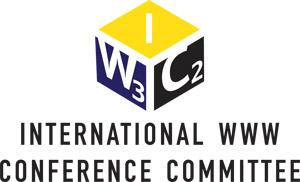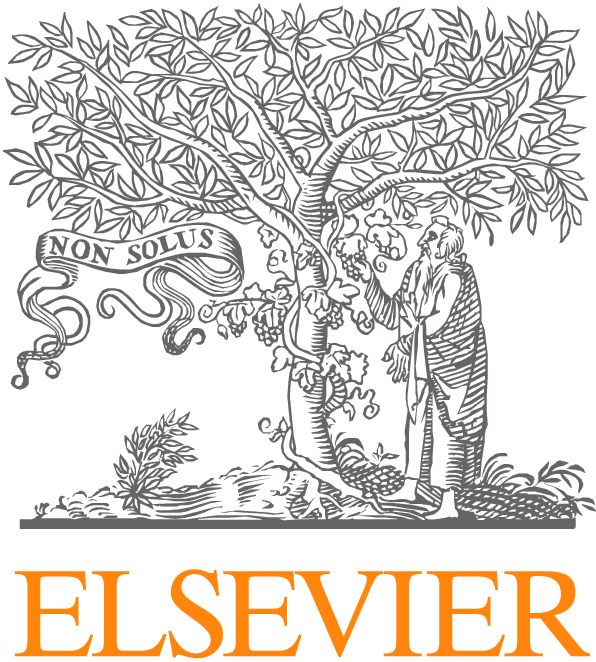The scale of the Web, its transformative nature, and the rate of its societal adoption are unparalleled in human history. The interdisciplinary field of Web Science is the emergent study of the people and technologies, applications, processes and practices that shape and are shaped by the World Wide Web. Web Science focuses on the analysis and design of the Web architecture, data and applications, as well as studies of the people, organizations, and policies that shape and are shaped by the Web, embracing the study of the Web as a vast information network of people and communities. Accordingly, it draws together theories, methods and findings from across academic disciplines, to develop our knowledge and understanding of the largest socio-technical infrastructure in human history.
This track focuses on all aspects of Web Science. Web Science is inherently interdisciplinary and combines research from disciplines as diverse as social science, sociology, politics, digital humanities, philosophy, art and history, computer science, economics and mathematics. Therefore papers are expected to demonstrate interdisciplinary work contributing new models, algorithms, data analysis, frameworks and applications with direct domain relevance and interdisciplinary impact. Papers should be clearly positioned within a use case and must convey clearly the importance of the contribution and findings to the state-of-the-art in the explicit Web Science disciplines.
Topics (non-exclusive list)
- Theoretical, methodological and ethical approaches for Web Science
- Structure, organization, architecture and philosophy of the sociotechnical Web
- Governance, ethics, trust, and privacy – Web vs. offline
- Network analysis of the Web and of Web-based data
- Web Science approaches to Data Science and the Web of Data
- Online social behavior
- Collective intelligence, collaborative production, and social computing
- Social data and the Semantic Web
- Social Media analytics for Web Science, including realtime
- Web Science and the Internet of Things
- People-driven Web technologies, including social search, open data, and new interfaces
- Web economics, social entrepreneurship and innovation
- Intellectual property and the commons
- Art, culture and humanities on the Web
- Web access, literacy, and development
- Social Safety and Well-being
- Web Science and cybersecurity
- The evolution of the Web with increasing machine intelligence and automation
For questions related to this call, please email: webscience@www2016.ca
Area Chairs
- Marta Sabou, Vienna University of Technology, Austria
- Dave De Roure, University of Oxford, UK
Program Committee
- Nitin Agarwal, University of Arkansas at Little Rock
- Pramod Anantharam, Kno.e.sis Center
- Stéphane B. Bazan, Université Saint-Joseph de Beyrouth
- Payam Barnaghi, University of Surrey
- Mark Bernstein, Eastgate Systems, Inc
- Kalina Bontcheva, University of Sheffield
- Pamela Briggs, Northumbria University
- Niels Brügger, The Centre for Internet Studies, Aarhus University
- Peter Burnap, Cardiff University
- Mark Carrigan, University of Warwick
- Ciro Cattuto, ISI Foundation
- Lu Chen, Kno.e.sis Center, Wright State University
- Edward Curry, Digital Enterprise Research Institute, Ireland
- Mathieu D'Aquin, Knowledge Media Institute, the Open University
- Pasquale De Meo, VU University, Amsterdam
- Stefan Dietze, L3S Research Center
- Miriam Fernandez, Knowledge Media Institute
- Emilio Ferrara, School of Informatics and Computing, Indiana University Bloomington
- Matteo Gagliolo, Université Libre de Bruxelles (ULB)
- Fabien Gandon, Inria
- Bruno Gonçalves, Aix-Marseille Université
- Derek Greene, University College Dublin
- Susan Halford, University of Southampton
- Simon Harper, University of Manchester
- Bernhard Haslhofer, AIT-Austrian Institute of Technology
- Conor Hayes, Insight Centre for Data Analytics, NUI Galway
- Laura Hollink, VU University Amsterdam
- Geert-Jan Houben, TU Delft
- Jeremy Hunsinger, Wilfrid Laurier University
- Ajita John, Avaya Labs
- Robert Jäschke, L3S Research Center
- Ricardo Kawase, mobile.de GmbH / eBay Inc.
- Renaud Lambiotte, University of Namur
- Matthieu Latapy, CNRS
- Silvio Lattanzi, Google
- Sune Lehmann, Technical University of Denmark
- Kristina Lerman, University of Southern California
- Massimo Marchiori, UNIPD and UTILABS
- Yelena Mejova, Qatar Computing Research Institute
- Alexandre Monnin, University Panthéon-Sorbonne (Paris I)
- Kieron O'Hara, University of Southampton
- Denis Parra, Pontificia Universidad Católica de Chile
- Hemant Purohit, Ohio Center of Excellence in Knowledge-enabled Computing (Kno.e.sis)
- Miriam Redi, Yahoo
- Haggai Roitman, IBM Research Haifa
- Matthew Rowe, Lancaster University
- Giancarlo Ruffo, Università di Torino
- Hassan Saif, The Open University - Knowledge Media Institute
- Xiaolin Shi, Microsoft Research
- Philipp Singer, Knowledge Management Institute
- Steffen Staab, University of Koblenz-Landau
- Markus Strohmaier, University of Koblenz-Landau
- Lisa Sugiura, University of Southampton
- Ramine Tinati, University of Southampton
- Christoph Trattner, KMI, TU-Graz
- Mark Weal, University of Southampton
- Matthew Weber, Rutgers University
- Lilian Weng, Indiana University
- Christopher Wienberg, Institute for Creative Technologies, University of Southern California

